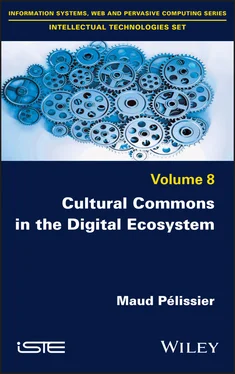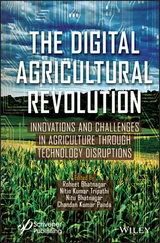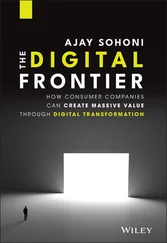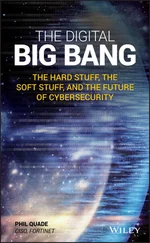Maud Pelissier - Cultural Commons in the Digital Ecosystem
Здесь есть возможность читать онлайн «Maud Pelissier - Cultural Commons in the Digital Ecosystem» — ознакомительный отрывок электронной книги совершенно бесплатно, а после прочтения отрывка купить полную версию. В некоторых случаях можно слушать аудио, скачать через торрент в формате fb2 и присутствует краткое содержание. Жанр: unrecognised, на английском языке. Описание произведения, (предисловие) а так же отзывы посетителей доступны на портале библиотеки ЛибКат.
- Название:Cultural Commons in the Digital Ecosystem
- Автор:
- Жанр:
- Год:неизвестен
- ISBN:нет данных
- Рейтинг книги:4 / 5. Голосов: 1
-
Избранное:Добавить в избранное
- Отзывы:
-
Ваша оценка:
- 80
- 1
- 2
- 3
- 4
- 5
Cultural Commons in the Digital Ecosystem: краткое содержание, описание и аннотация
Предлагаем к чтению аннотацию, описание, краткое содержание или предисловие (зависит от того, что написал сам автор книги «Cultural Commons in the Digital Ecosystem»). Если вы не нашли необходимую информацию о книге — напишите в комментариях, мы постараемся отыскать её.
Cultural Commons in the Digital Ecosystem — читать онлайн ознакомительный отрывок
Ниже представлен текст книги, разбитый по страницам. Система сохранения места последней прочитанной страницы, позволяет с удобством читать онлайн бесплатно книгу «Cultural Commons in the Digital Ecosystem», без необходимости каждый раз заново искать на чём Вы остановились. Поставьте закладку, и сможете в любой момент перейти на страницу, на которой закончили чтение.
Интервал:
Закладка:
This attempt to reconstruct the various intellectual movements also aims to isolate, in the creative, artistic and scientific fields, the criteria likely to identify resources eligible for the status of cultural commons in the digital ecosystem. Indeed, while this thinking of the commons claims to refound the socio-economic order, it is a question of being able to identify the resources that can claim such a status and then to study the conditions of deployment and survival in complex digital ecosystems.
Thus, in a second part, we will extend this reflection by exploring the conditions of deployment of this cultural commons economy in a specific digital ecosystem, that of the book, relying in each case on the eligibility criteria previously highlighted. The following will be explored in two consecutive chapters, digital library projects as well as common heritage projects, and then self-publishing platforms as illustrations of written commons. At the heart of this empirical analysis is the thorny question of the cohabitation of these cultural commons with the actors of the traditional cultural economy. What guarantees that this emerging cultural commons economy will not be swept away by the force of capitalism’s vague “proprietarist” tendencies? Or, conversely, does it not have the intrinsic strength to gradually transform the foundations of cultural capitalism to become the rule rather than the exception? Regardless of the horizon, the cultural commons economy leads to a renewal of the political economy of culture.
PART 1
The Intellectual Movement of the Cultural Commons
Introduction to Part 1
In the cultural field, our investigation into the origins of this notion of the common has led us to identify its birthplace on the other side of the Atlantic. It is indeed there, at the heart of a movement of revolt against certain identified misdeeds of contemporary cultural capitalism, that the notion of the common has been reactivated. This movement was initiated by a group of American jurists gathered at the Berkman Center for Internet and Society (BCIS), founded in 1998 at Harvard University, a unique meeting place for academics and activist experts of the digital world. Among these jurists, all specialists in intellectual property, some, more than others, positioned themselves at the forefront of the scene, such as James Boyle, Yochai Benkler and Lawrence Lessig 1 .
The target of their critique was the “proprietarist” evolution of information and cultural markets, symbolizing a drift of the neoliberal economy and a fundamentalist vision of the market. In particular, the evolution of the institutional ecology of cultural markets in the digital ecosystem is, in their view, a major obstacle to free culture, which, after being supplanted throughout the 20th century by a hegemonic commercial popular culture, found a new space for expression. Free creative practices do not fall directly within the scope of copyright, but, for all that, they were quickly condemned by the cultural 2 industries. They symbolize a willingness to share in an ecosystem that facilitates and democratizes popular expression. The notion of the commons was then mobilized by these jurists to account for these transformations. It embodies the possibility of a free cultural economy that is not intended to replace the commercial cultural economy, but rather to find ways of balanced cohabitation.
The notion of the common was not chosen by chance; it has an ancient history. In the economic domain, it has long been disqualified, evoking the subsistence of forms of resource exploitation perceived as an incomprehensible survival of a system deemed inefficient (Guibet Lafaye 2014). It was updated in the 1970s by the economist Elinor Ostrom, who was awarded a Nobel Prize for her work in the field in 2009. On the basis of numerous empirical research works, she has shown that many common natural resources, which were neither managed by the State nor exclusively by the market, constituted an effective yet efficient regulation based on an original model of self-governance and a conception of property in terms of a body of law.
Much later, in the early 2000s, Elinor Ostrom proposed an extension of her approach from land commons to knowledge commons. James Boyle, a jurist with the BCIS, invited her to a conference at Duke University on this topic. On this occasion, in association with librarian Charlotte Hess, Director of the Digital Commons Library at Indiana University 3 , she presented a paper entitled “Ideas, Artifacts and Facilities as a Common-Pool Resource” (Hess and Ostrom 2003). They extended these reflections in a book on knowledge commons that paid particular attention to digital archives and libraries as knowledge commons (Hess and Ostrom 2007). This Ostromian intellectual current constitutes the second intellectual locus in which the notion of commons in the digital ecosystem has found a new conceptual life.
Ostrom‘s intellectual output in this field is not equivalent to what she has produced on the analysis of land commons. However, she has opened up and legitimized the creation of a research program on the theme of knowledge commons in the field of scientific communication, thus offering a theoretical framework for identifying the conditions of their institution and their deployment in the digital ecosystem. In France, Ostrom’s approach has been extended in a multidisciplinary research program initiated by the economist Benjamin Coriat in 2013. The scope of this program and the interest it shows in the commons in the digital ecosystem, even if it does not focus primarily on the cultural field, deserves to hang around. The rapprochement with the social and solidarity economy also shows their desire to anchor their thinking on communities in a political economy perspective.
1 1James Boyle, founder of the Center for the Study of the Public Domain, is a professor at Duke Law School in Durham, North Carolina. Yochai Benkler and Lawrence Lessig are professors at Harvard Law School.
2 2This chapter is an in-depth version of a French article written in the journal TIC et Société, “Communs culturels numériques : origine, fondement et identification”, vol. 12, no. 1, 2018.
3 3The Digital Library of the Commons is a portal archiving international literature on the commons. All articles are free and open access. This is a collaborative project linked to the Workshop in Political Theory and Policy Analysis by Vincent and Elinor Ostrom. See: https://dlc.dlib.indiana.edu/dlc/.
Конец ознакомительного фрагмента.
Текст предоставлен ООО «ЛитРес».
Прочитайте эту книгу целиком, купив полную легальную версию на ЛитРес.
Безопасно оплатить книгу можно банковской картой Visa, MasterCard, Maestro, со счета мобильного телефона, с платежного терминала, в салоне МТС или Связной, через PayPal, WebMoney, Яндекс.Деньги, QIWI Кошелек, бонусными картами или другим удобным Вам способом.
Интервал:
Закладка:
Похожие книги на «Cultural Commons in the Digital Ecosystem»
Представляем Вашему вниманию похожие книги на «Cultural Commons in the Digital Ecosystem» списком для выбора. Мы отобрали схожую по названию и смыслу литературу в надежде предоставить читателям больше вариантов отыскать новые, интересные, ещё непрочитанные произведения.
Обсуждение, отзывы о книге «Cultural Commons in the Digital Ecosystem» и просто собственные мнения читателей. Оставьте ваши комментарии, напишите, что Вы думаете о произведении, его смысле или главных героях. Укажите что конкретно понравилось, а что нет, и почему Вы так считаете.












